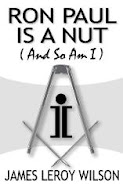Much of the distinction between conservative, liberal, libertarian, and authoritarian center around the extent of the public vs. the private sphere. But "private" doesn't necessarily mean the same as "privacy."
For instance, markets and industries that are "privatized" are still, by their nature, "public" even though not government owned. Regardless of how much one believes in an active government role in the economy, education, labor, etc., one can still have a high view of privacy, that's it's not the government's business what you eat, drink, and smoke, what books you read, whether you play poker for money, etc. Your home is your castle.
It isn't even a question exclusively about the laws, but also of enforcement powers. A country that imposes a small tax to support a state church, but doesn't compel attendance (say, Sweden), can be freer than a rabidly secular state (like Turkey). Pay taxes, obey the laws against force and fraud and conform to the market regulations, but then do as you please. Some blue laws long on the books can not be enforced if the police do not have the power to barge into your home.
Yes, I am against the taxes and the market regulations, but what I'm getting at is that the right to privacy, even though not mentioned in the Constitution, is the foundation of a free society. More so than democratic government or the "rule of law."
I would go further and say that privacy is the very definition of a free society. No matter the extent of the welfare state or the warfare state in Europe and North America, it is the absence of the Police State that compels us to admit that, despite all, we are relatively free.
Which makes the growth of the Police State in the United States all the more sinister. We are losing the soul of the nation.
James Leroy Wilson's one-man magazine.
Subscribe to:
Post Comments (Atom)




No comments:
Post a Comment